Space
Sign up for our newsletter
We summarize the week's scientific breakthroughs every Thursday.
-
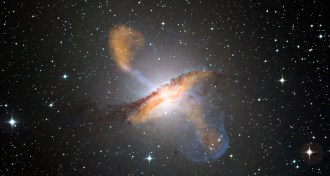 Astronomy
Astronomy‘Supernova sweeping’ cleans up a galaxy’s gas
Supernovas might sweep the remaining gas out of a galaxy after a supermassive black hole triggers the end of star formation.
-
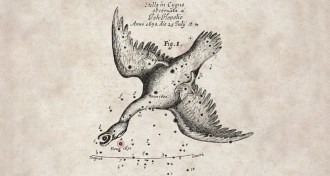 Astronomy
AstronomyEnigmatic 17th century nova wasn’t a nova at all
A nova observed in 1670 was actually two stars colliding, new evidence suggests.
-
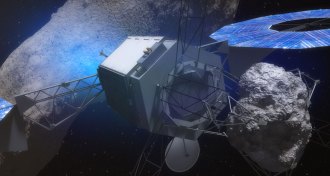 Planetary Science
Planetary ScienceNASA has a plan for putting rock from asteroid in moon’s orbit
NASA selects concept for its Asteroid Redirect Mission, which will let astronauts train for future missions to Mars.
-
 Astronomy
AstronomyWhat’s in a name? In science, a lot
Classification systems are essential to science. But any classification system, however useful, is ultimately simplistic.
By Eva Emerson -
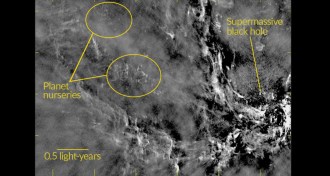 Astronomy
AstronomyUnlikely nursery for new planets is next to massive black hole
Planet nurseries encircle young stars within a few light-years of the supermassive black hole in the center of the Milky Way, scientists claim.
-
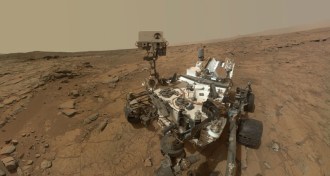 Planetary Science
Planetary SciencePotentially life-friendly nitrogen compounds found on Mars
“Fixed” nitrogen has been found in Mars deposits, raising the possibility that ancient life could have used it to build biomolecules.
-
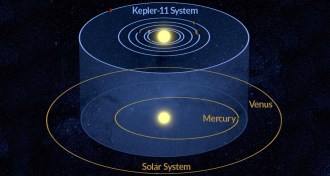 Planetary Science
Planetary ScienceEarth, neighbors weren’t the first rocky planets in the solar system
Jupiter might have swept an earlier generation of rocky planets into the sun, leaving room for Earth and its neighbors to form.
-
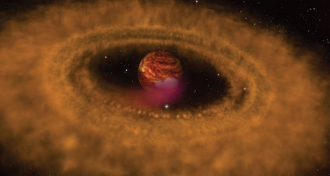 Astronomy
AstronomySolo planets may be surprisingly common
Rogue planets may form as stars do, but on a smaller scale, or they may go forced out of orbit during planetary ping-pong. Researchers are scanning the skies for them.
-
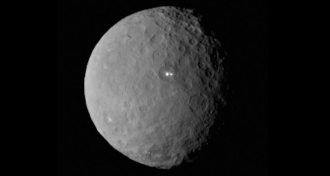 Planetary Science
Planetary ScienceBright patches on Ceres are plumes of water, maybe
Bright patches on Ceres could be plumes of water venting into space.
-
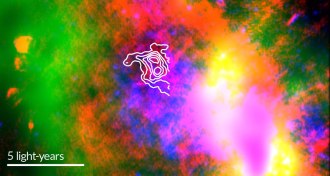 Astronomy
AstronomySpace dust is tough enough to survive supernova aftermath
Dust still lingers in the remnants of supernova that exploded 10,000 years ago, affirming that the explosions filled the early universe with dust.
-
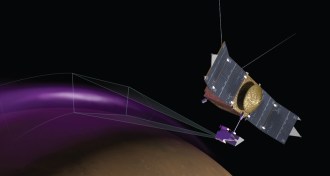 Planetary Science
Planetary ScienceMartian aurora, high-altitude dust clouds surprise scientists
Surprise auroras and mystery dust clouds dance in the Martian atmosphere, NASA’s newest Mars orbiter discovers.
-
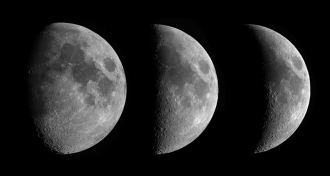 Astronomy
AstronomyFast-spinning young Earth pulled the moon into a yo-yo orbit
The early moon’s orbit created a cycle between lunar phases unlike the one seen nowadays.